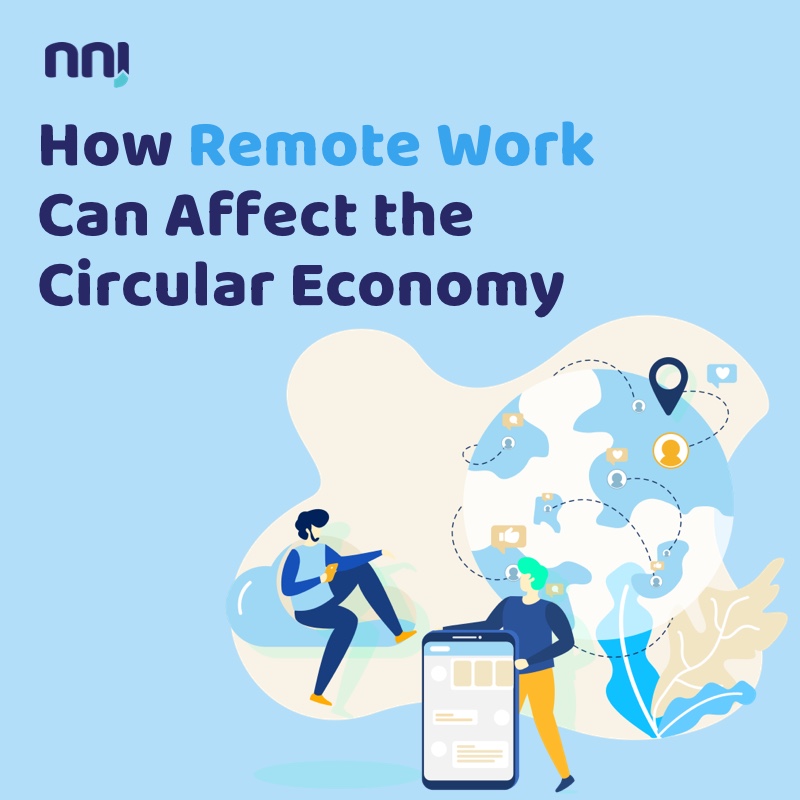The rise of remote work in recent times has significantly impacted how we operate professionally, but it has also presented us with a unique opportunity to contribute to the circular economy and sustainability efforts. By embracing remote work, organizations and individuals can play a vital role in shaping a more sustainable future. Here’s how remote work can drive positive change in the realm of circular economy and sustainability:
Reduced Commuting Footprint: Remote work eliminates the need for daily commutes, resulting in reduced carbon emissions from transportation. This shift contributes to cleaner air, decreased traffic congestion, and a lowered environmental impact, aligning with sustainability goals and efforts to mitigate climate change.
Resource Conservation: Remote work minimizes the use of office space and resources, leading to reduced energy consumption, water usage, and waste generation. By optimizing resource allocation and space utilization, organizations can make strides towards a more circular and efficient use of resources, supporting sustainable practices and environmental stewardship.
Promotion of Digitalization: Remote work encourages the use of digital tools, platforms, and paperless workflows. This digital transformation fosters a reduction in paper usage, promotes electronic communication, and supports the transition towards a more sustainable, technology-driven economy.
Embracing Flexibility: Remote work enables individuals to adopt more sustainable lifestyles, allowing for greater flexibility in managing work, personal life, and leisure activities. This flexibility can lead to a healthier work-life balance, reduced stress, and an overall improvement in well-being, fostering a sustainable approach to life and work.
Fostering Local Communities: Remote work empowers individuals to work from a variety of locations, including their local communities. This shift can promote support for local businesses, reduce the need for long-distance commuting, and contribute to the vitality and sustainability of local economies.
While remote work presents a range of benefits for circular economy and sustainability, it’s important to continue steering these efforts in a direction that prioritizes environmental responsibility, social equity, and economic resilience. By leveraging the positive impacts of remote work, we can collectively contribute to a more sustainable, inclusive, and environmentally conscious future.




